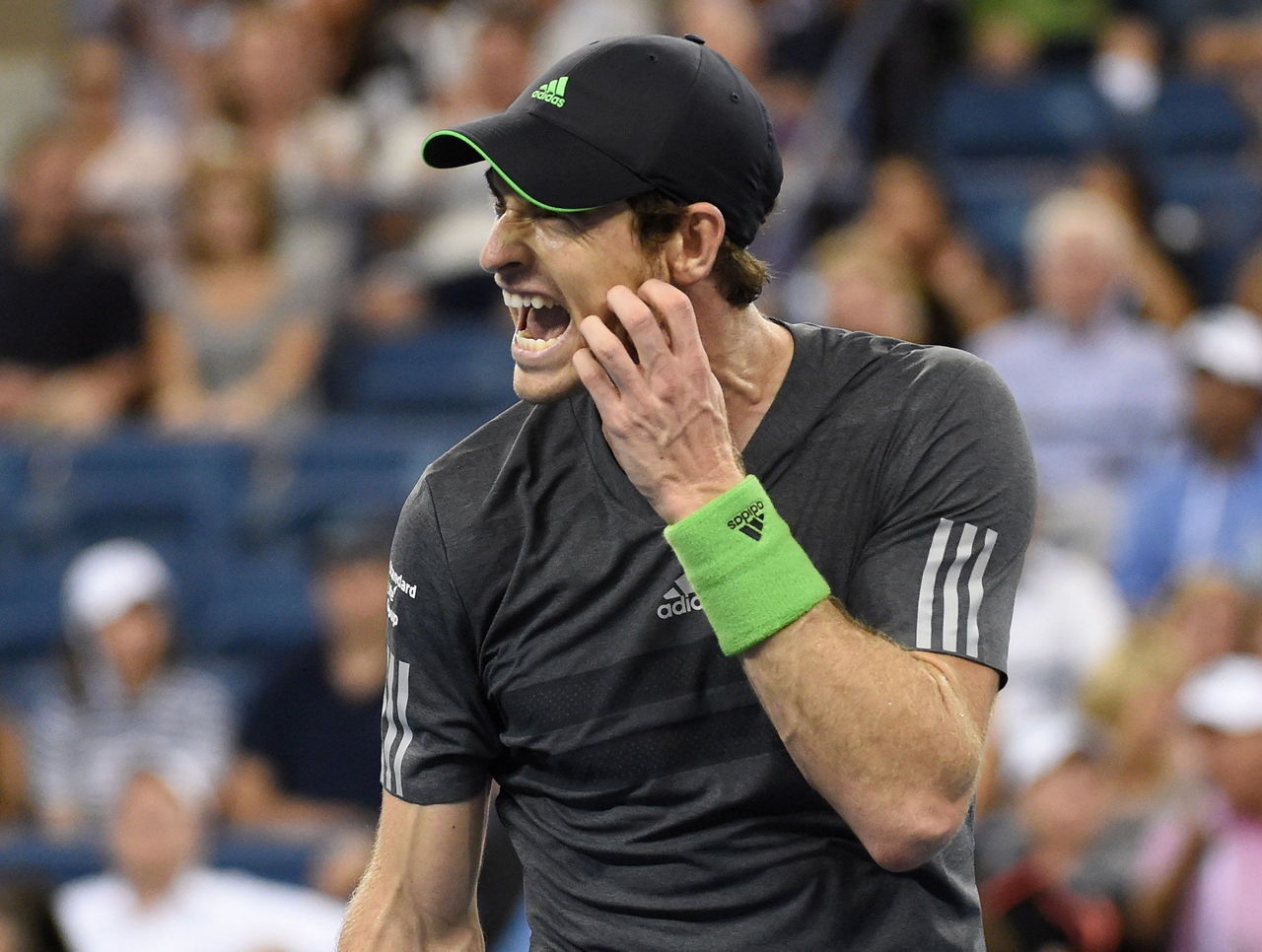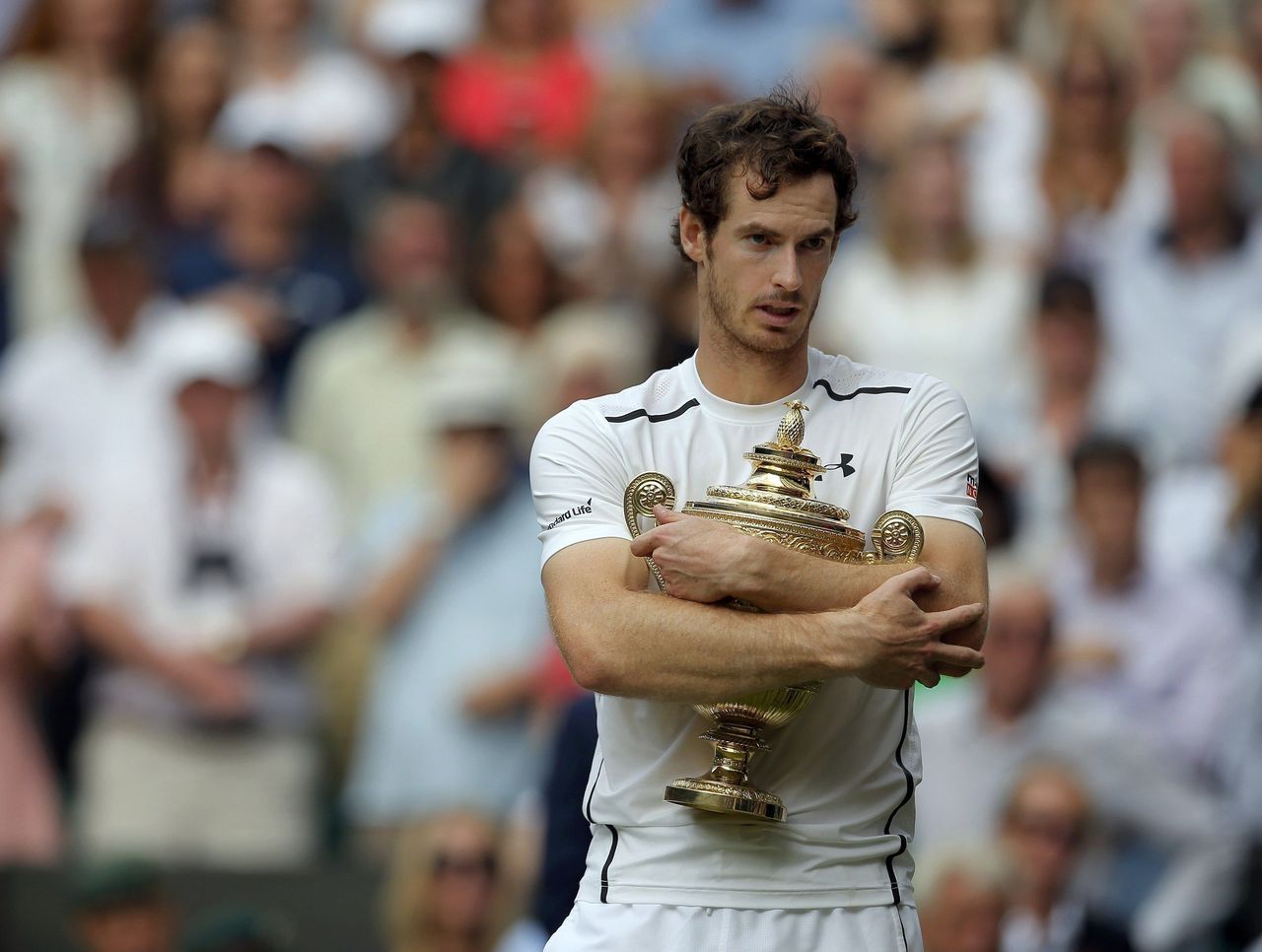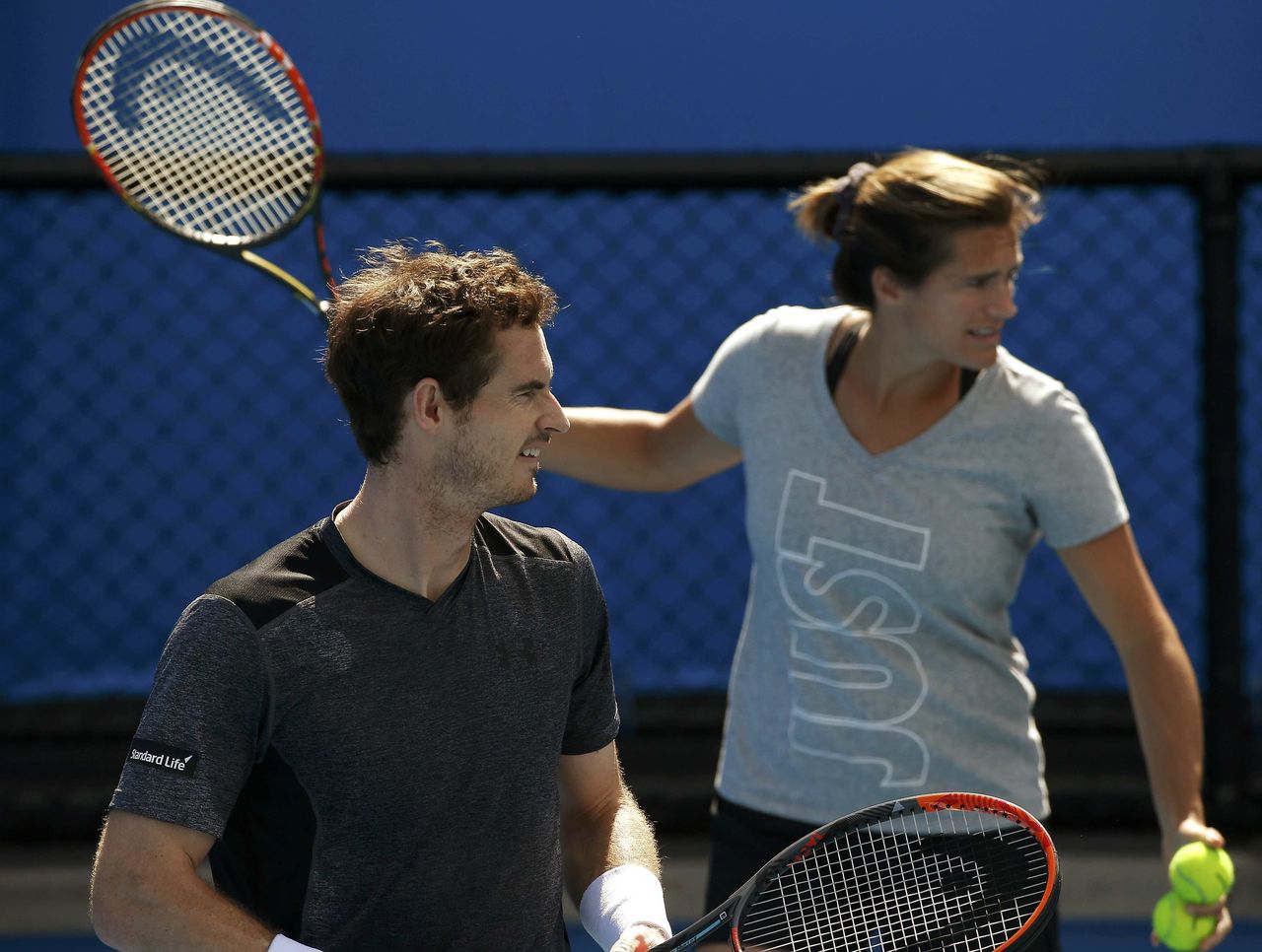Andy's independence: At Wimbledon, Murray finally wins one for himself
After playing a near-perfect match to dismantle Milos Raonic on Centre Court, after weeping with joy and cradling the championship trophy like it was his 5-month-old daughter, Andy Murray insisted that this, his second Wimbledon title, was more satisfying and enjoyable than his first.
It might've been tough to believe him if not for the raw emotion on display.
His first, after all, had been an indelible piece of history and iconography. It ended a 77-year drought for Britons at the All England Club, and it came over longtime rival and world No. 1 Novak Djokovic. It produced an unbelievable moment of catharsis, a collective exhale from a whole doubt-addled nation. But that victory brought no personal joy, Murray explained. Only relief. This time, he got to revel in it. This time, the moment was entirely his.
The doldrums

After winning Wimbledon the first time, Murray said: "I know now that, if I finish playing tomorrow, I'd be content. I wouldn't be concerned about what I'd achieved or things I could have done or been able to do, whether my tennis wasn't good enough or mentally I wasn't good enough or whatever."
In the trying years that followed, though, Murray's reactions to every instance of failure - be it a lost match or a lost service game or a single mishit groundstroke - belied his purported contentedness. If anything, he seemed more nerve-wracked and tormented than ever. It was as if so much of him had been sucked into chasing that one chunk of history that afterward he was left adrift, unsure of his further purpose.
His back ought to have felt lighter after shaking off that Wimbledon monkey, but instead he needed to have it surgically repaired. It took him more than a year to fully regain his fitness and mobility. In the meantime, he yanked his famously crisp backhands, shoveled forehands into the net, botched easy looks, and bailed out of rallies with untimely drop shots. He went 14 months without making a tournament final or beating a top-10 player.
He parted ways with Ivan Lendl - the coach who'd helped get him over the hump - and said the split "gutted" him. On the court, he came unglued. He flailed his arms, stomped his feet, scrunched his eyes, bared his teeth, clenched his jaw, flapped his lips, flared his nostrils, garbled self-flagellating tirades, and rarely expressed an iota of outward happiness at playing the sport he'd once briefly conquered.
Sunday's win ended a far more modest drought for British tennis (just three years, this time), but for Murray it represented something greater. It was the culmination of his escape from those post-Wimbledon doldrums.
Independence

The last time Murray publicly sobbed the way he did Sunday, they weren't tears of joy he shed, but of exasperation and sorrow. After he lost the 2012 Wimbledon final to Roger Federer, a year before he finally won the damn thing, he broke down during his runner-up speech, in front of a soulful, commiserating Centre Court crowd. That probably remains the peak of Murray's global approval rating. He was never easier to empathize with than at that moment, when he so nakedly embodied the reality that in sports, as in life, the successes never feel as good as the failures feel bad, and that sometimes the destination really is more important than the journey.
The thing is, that destination never felt felt like one he chose for himself. The ultimate goal (and all attendant pressure) of winning Wimbledon was foisted on him, by the nation that foisted itself on his birth country three centuries earlier. And Murray, for his part, never felt like the champion the Wimbledon faithful would've dreamed up, so much as the one they got. If they'd been able to choose, perhaps they'd have picked someone a little smoother around the edges, a little more manicured, a little less guttural, a little less Scottish.
The past two years have been seismically restive both in Scotland and the United Kingdom at large. Murray may have rankled his British fans by coming out in favor of Scottish independence before the 2014 referendum, but Brits reeling from the fallout of their country's recent vote to leave the European Union still felt connected enough to rest their hopes for consolation on his shoulders Sunday.
It's come to this…Andy Murray: Antidepressant. #Wimbledon pic.twitter.com/HZRI5YqsAg
— Ben Rothenberg (@BenRothenberg) July 10, 2016
This time, Murray seemed unburdened by the responsibility. Though Scotland's secession bid failed, Murray's been asserting his own independence ever since winning that first Wimbledon three years ago. Independence not just from his complicated national identity, but from anyone and anything that might deign to claim ownership of him or his story.
His own man
Murray hired Amelie Mauresmo as his coach - presumably because he thought she'd make a good coach - and when others suggested he'd hired a woman simply to make a statement, he doubled down on his commitment to her. He announced during this year's Australian Open that he'd pull out of the tournament - even the final - if his wife, Kim Sears, went into labor. He later found himself defending his devoted fatherhood, saying: "I'd rather be getting up in the middle of the night and helping (my daughter) than winning every tennis match and her thinking when she grows up, 'Actually, you know what, he was a shitty dad, but he won a lot of tennis matches.'"
He's derided tennis' known drug cheats, openly speculated about unknown others, and demanded more rigorous anti-doping measures in the sport. He's accused tennis' governing bodies of hypocrisy for trying to stamp out match-fixing while simultaneously partnering with betting companies whose logos they prominently displayed on Grand Slam show courts. He's gone after the ATP's No. 1 player for his clumsy comments about women and equal pay. He's chastised the tour’s most overtly sexist player on Twitter. He's taken perhaps the tour's most polarizing player under his wing. After years of being bound by a prescribed role and identity, today's Murray is untethered; his own man, with his own priorities.

The crowd in Centre Court and on Henman Hill still went nuts for him Sunday. The Duke and Duchess of Cambridge still showed up to pay their respects. So did David Cameron, the Prime Minister who's resigning because of the Brexit flap. Brits and Scots everywhere can still revel vicariously in Murray's victory. But between his stunningly unencumbered play, his jubilant tears, and his post-match admission, Murray let them know that he didn't really win this one for them.
He gave Britain its moment already. (After he ended the drought in 2013, the BBC even produced a special called "The Day We Won Wimbledon.") The emotion that poured out of Murray in 2012 was profound disappointment, at having failed in a task he'd begun to feel duty-bound to complete. The next year, it was absolute relief at having fulfilled that onerous duty. This time, he got to feel the appropriate sentiment: unbridled, uncomplicated pride.
He didn't win this one for Britain, which is now mired in its own identity crisis. He didn't win it for Scotland, which is now talking about holding another independence referendum so it might remain in the EU. This one was for Murray's team, which Lendl recently rejoined. It was for his family, and his infant daughter. It was for those three long years of soul-searching he had to go through to get here.
This one, finally, was for Andy Murray.